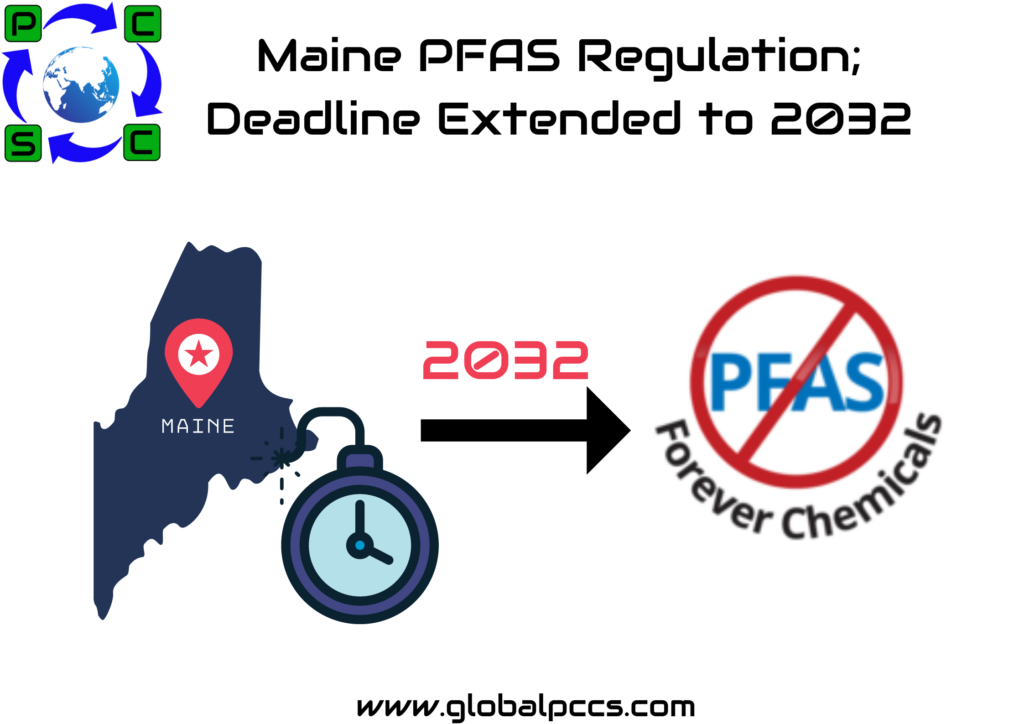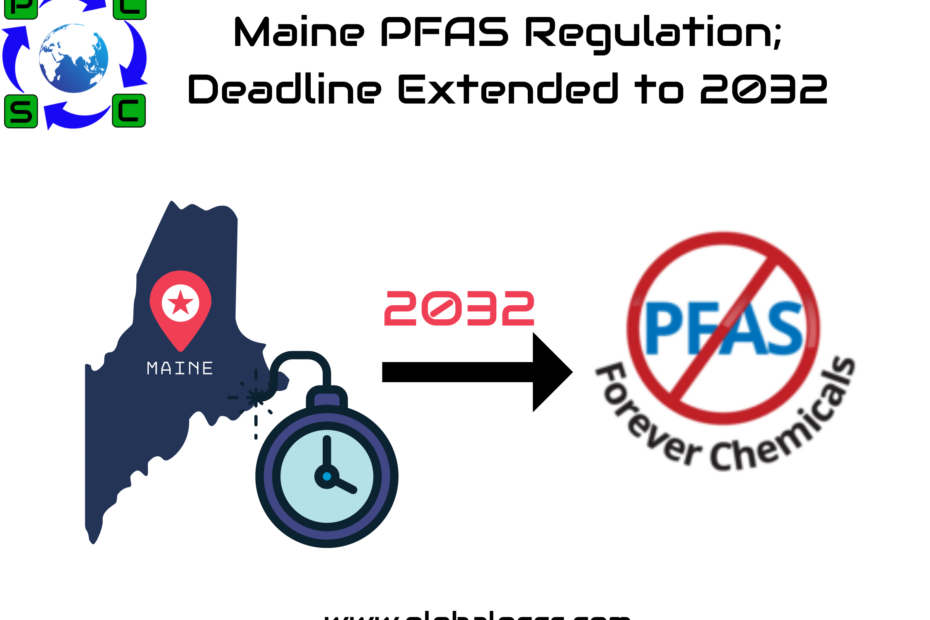 On April 16, the Governor of Maine signed a new amendment to the state’s PFAS regulation bringing about crucial changes that directly impact electronics manufacturers.
On April 16, the Governor of Maine signed a new amendment to the state’s PFAS regulation bringing about crucial changes that directly impact electronics manufacturers.
Among other changes, the January 1, 2025 reporting requirement for all products sold in Maine has been eliminated, while maintaining prohibitions on PFAS usage. Additionally, the prohibition deadline has been extended from January 1, 2030 to January 1, 2032 for most products (including consumer electronics). However, the notification requirement is still in place for products or specific uses which have been granted an unavoidable use determination by the Maine Department of Environmental Protection (DEP).
The details of the requirements and ban on the sale of any products sold in the state of Maine which contain intentionally added perfluoroalkyl and polyfluoroalkyl substances (PFAS) substances, are outlined below.
General Prohibition: Starting January 1, 2032, companies will not be able to sell, offer for sale, or distribute to sell any product containing intentionally-added PFAS in the state of Maine unless exempted due to product category or unavoidable use as noted below. Previously the effective date for this prohibition was January 1, 2030.
Alternative Product Category Deadlines: Some products have different deadlines than stated above. The prohibition deadline for carpets, rugs, and fabric treatments became effective as of January 1, 2023. The prohibition deadline for cleaning products, cookware, cosmetics, dental floss, juvenile products, menstrual products, ski wax, and upholstered furniture becomes effective as of January 1, 2026. The prohibition deadline for artificial turf and outdoor apparel for severe wet conditions is effective January 1, 2029. Finally, the prohibition deadline for cooling, heating, ventilation, air conditioning and refrigeration equipment, including parts and other servicing needs for such equipment, and refrigerants, foams and aerosol propellants comes into effect on January 1, 2040.
Product Category Exemptions: Semiconductors, non-consumer electronics (electronic devices not used for personal, family, or household purposes), non-consumer laboratory equipment, medical devices, veterinary products, water testing products, products required to meet various federal transportation/aviation/defense standards, motor vehicles, watercrafts, firefighting foams, and equipment used to produce the aforementioned categories of products are exempted from the prohibition and may continue to use intentionally-added PFAS in their products.
Unavoidable Use Exemption: Products containing intentionally-added PFAS which have been granted an unavoidable use determination by the DEP, are exempt from the prohibition requirements for a period of 5 years from the determination date or prohibition date. Instead, they are subject to the reporting requirements of the regulation, effective as of the unavoidable use determination by DEP.
Small Business Exemption: Manufacturers that employ 100 or fewer people are exempt from the notification requirements of the regulation. Previously the small business exemption was for manufacturers employing 25 or fewer people.
Notification Requirement: Manufacturers subject to unavoidable use determinations must notify the DEP if they sell, offer for sale, or distribute to sell any product containing intentionally-added PFAS. The notification must include, among other information, a brief description of the product, the purpose for which PFAS are used in the product, the amount and identification of each of the PFAS, and identification of the specific unavoidable use determination applied. Previously the effective date for notification requirements was January 1, 2025, and the previous notification requirements applied to all products containing intentionally-added PFAS rather than just products that have been granted an unavoidable use determination.
Implications for Minnesota’s PFAS regulation
Effective January 1, 2026, the new regulation requires notification prior to selling, offering for sale, or distributing in the state any product that contains intentionally added perfluoroalkyl and polyfluoroalkyl substances (PFAS).
Per the regulation, on or before January 1, 2026, affected manufacturers must submit to the commissioner of the Minnesota Pollution Control Agency information that includes:
- A brief description of the product, including a universal product code (UPC), stock keeping unit (SKU), or other numeric code assigned to the product;
- The purpose for which PFAS are used in the product, including in any product components;
- The amount of each PFAS, identified by its chemical abstracts service registry number (CAS Number), in the product, reported as an exact quantity determined using commercially available analytical methods or as falling within a range approved for reporting purposes by the commissioner;
- The name and address of the manufacturer and the name, address, and phone number of a contact person for the manufacturer; and
- Any additional information requested by the commissioner as necessary to implement the requirements of this section.
The amendments to Maine’s PFAS regulation not only impact affected businesses but also raise questions about the fate of similar regulations in other states. Given the close alignment between Maine and Minnesota’s PFAS regulations, the changes introduce a layer of uncertainty regarding Minnesota’s stance on PFAS regulation.
Electronics manufacturers and industry stakeholders await clarity on whether Minnesota will follow suit and amend its regulation in alignment with Maine’s changes or maintain its original framework. However, currently there is no indication Minnesota plans to adopt similar changes to their PFAS in product requirements.








 Authorised IMDS & CDX Training & Consulting partner for
Authorised IMDS & CDX Training & Consulting partner for






